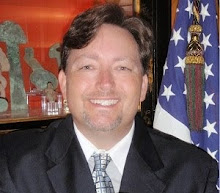GAINESVILLE, Fla. – April 29, 2010 – Florida real estate markets show the first tentative signs of recovering from the most painful recession in the state's history, according to the latest University of Florida (UF) report.
"Results of our first quarter survey indicate that the real estate market in Florida has hit bottom and is in the process of stabilizing across most property types," says Timothy Becker, director of UF's Bergstrom Center for Real Estate Studies.
But while most of the survey respondents report the market probably won't get any worse, few say it has actually begun to improve yet, Becker says. "One of our respondents summed it up by stating that 'if anything, we will get less bad.'"
On the positive side, private capital – both foreign and domestic – is continuing to enter the state in search of quality investment deals. As banks start to deal with their problem assets, more deals will come to market.
Another good sign: Life insurance companies have started to re-invest in commercial properties after backing off for the last year and a half, Becker says. Because these companies use premiums from life insurance policies to make investments, they are not deterred by the lack of available bank financing.
"(Life insurance companies) see the fundamentals of the economy stabilizing and they see the opportunity to get quality assets at a good price," Becker says. "So if they think things aren't going to get worse and they may actually get better, it follows that they're going to want to start investing again."
On the negative side, unemployment continues to be one of the state's biggest problems, edging up to 12.3 percent in March, its highest level since the state began keeping count in the 1970s. Florida has lost more than 880,000 jobs since 2007.
Although there is a potential for job growth later in the year, even under the most optimistic assumptions it will take three to four years to return to 2006 levels, Becker says.
Also of concern is the continued reluctance of commercial banks to lend money because of pressure from regulators to manage risks along with depressed values that make it difficult to refinance mortgages.
The retail and office markets are the worst off, Becker says. "Until there is an increase in job growth, there is no need for more office space, and people aren't spending as much money as they used to."
Apartments continue to be the best market in the state due to high demand from people moving out of foreclosed homes. "More people are going to be living in temporary spaces than trying to buy homes just because it's gotten a lot more difficult to buy homes from a financing perspective," Becker says.
Statewide, Florida's new housing market will continue to be slow, a result of more foreclosed homes becoming available. "That competition makes it very difficult for new homes to get built and purchased because buyers can often get an equal or nicer home for a much cheaper price on the foreclosure market," Becker says.
One of the strongest areas of the state is South Florida, especially Miami-Dade and Broward counties, with their diverse economies, steady migration and influx of foreign capital. "The glut of condos in South Florida is actually starting to change hands – they're beginning to rent them – and I think there is more life in downtown Miami than there has been in a long time," Becker says.
Orlando, Tampa and Jacksonville also are picking up. "Florida's big cities – those four areas – are less bad off than the rest of the state, and they're going to recover quicker than other places," Becker says.
Jacksonville, in particular, is in a good position because its housing market never got as hot as other markets; and, as a result, it doesn't have as many foreclosures. "I think Jacksonville is primed to really take off, and with the expansion of the port is going to have a lot of jobs coming into the marketplace," Becker says.
A positive note overall is that survey respondents' confidence in their own business has risen for the fifth consecutive quarter. In previous breakdowns by profession, developers and lenders had extremely low expectations for their own businesses, and that has grown substantially in the last few surveys.
"It's always a good sign for us that the lenders think their business is going to get better," Becker says. "Maybe it means there is some light at the end of the tunnel, even though we're still not at a great spot."
© 2010 Florida Realtors® Courtesy: http://www.floridarealtors.org/NewsAndEvents/article.cfm?id=238713

